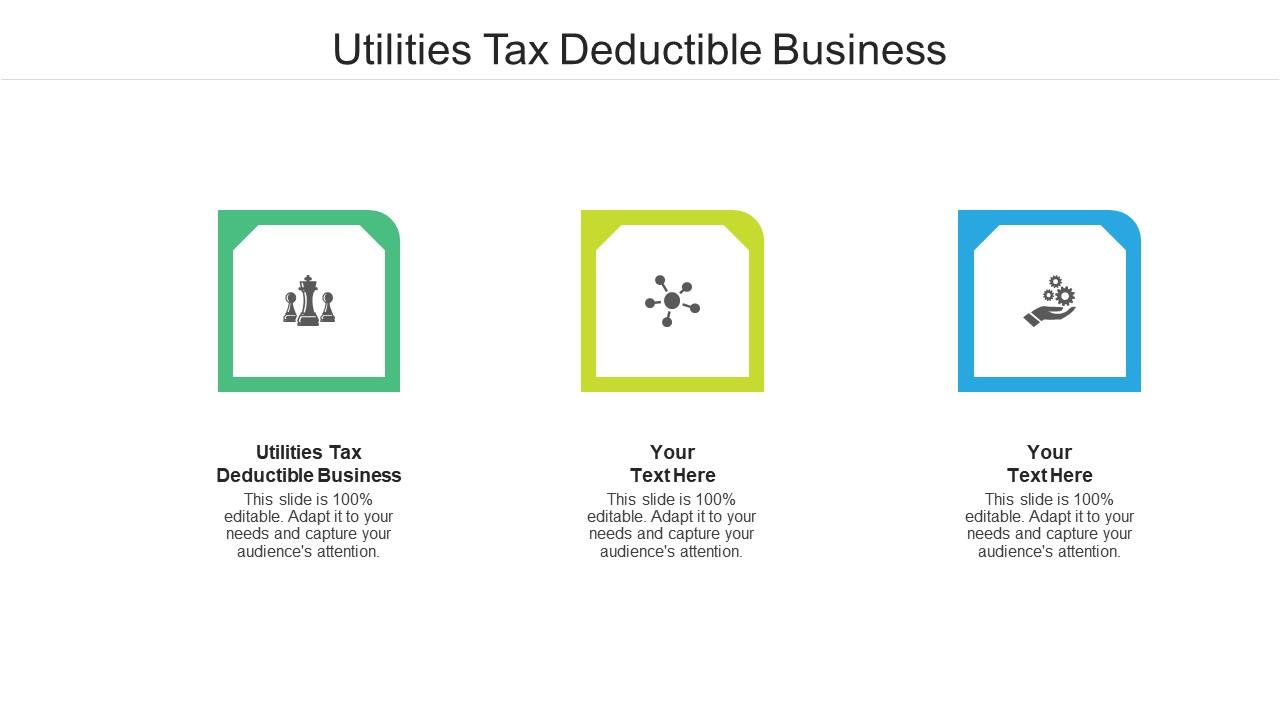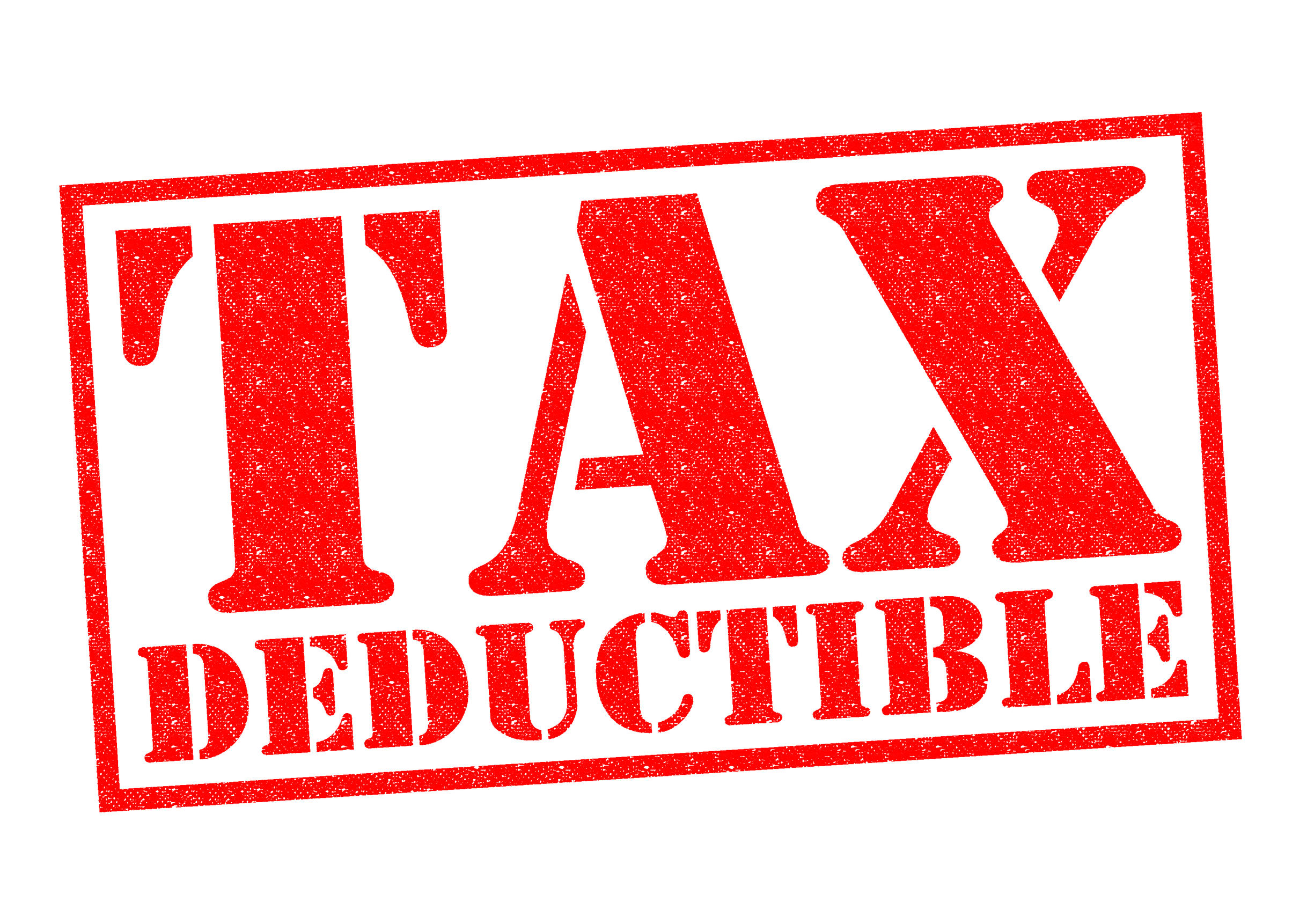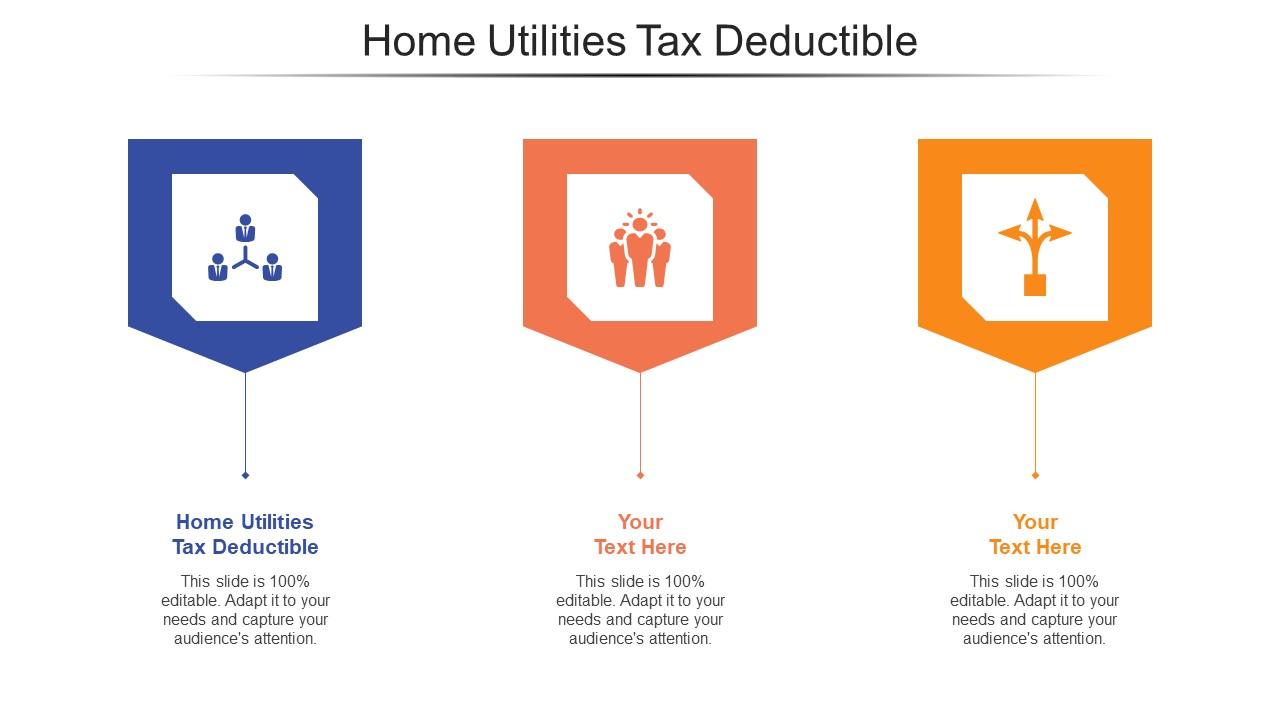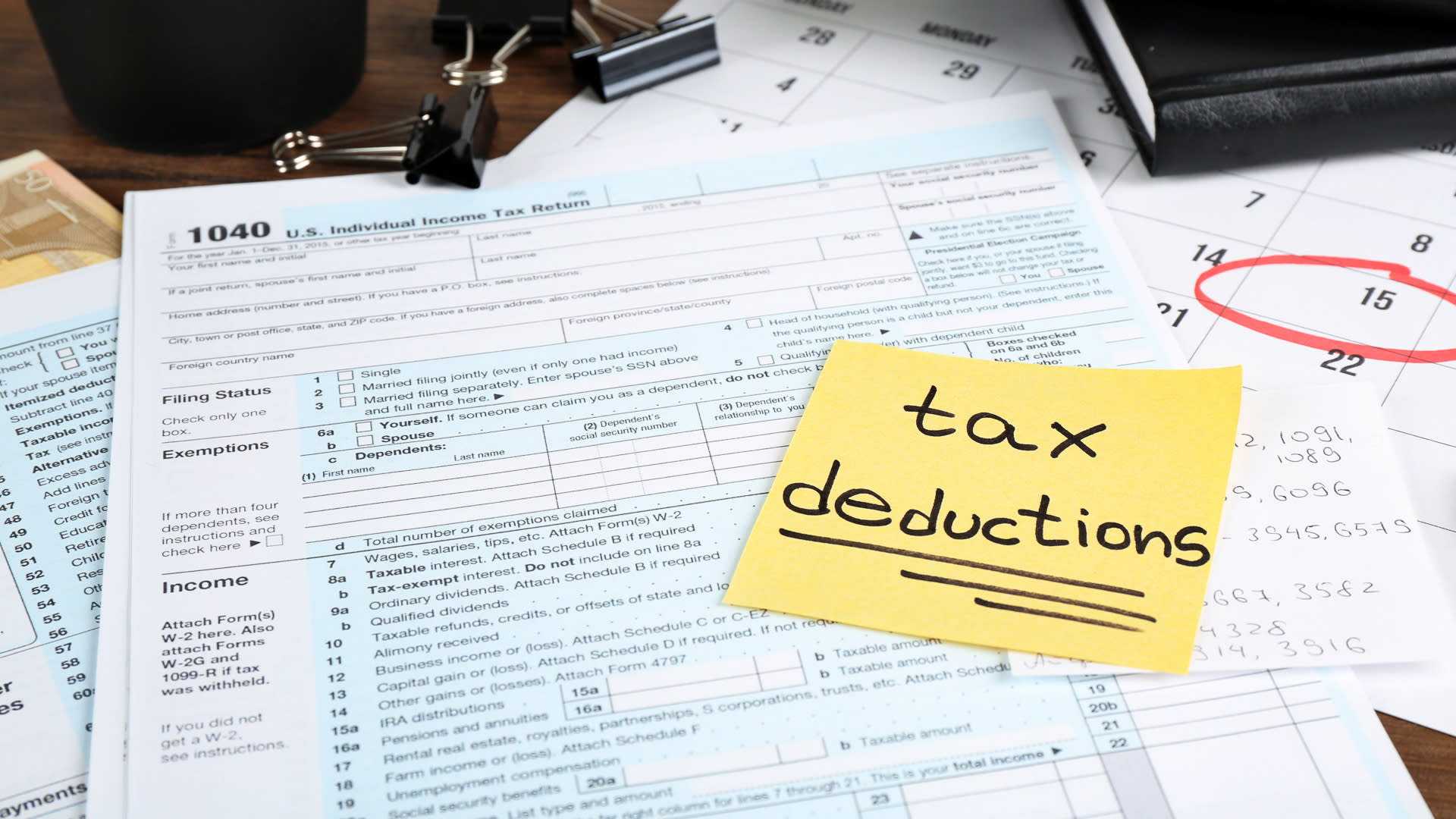Are utilities tax deductible – The question of whether utilities are tax deductible has far-reaching implications for businesses and individuals alike. This comprehensive guide delves into the intricate world of utility deductions, examining the general rules, specific types of expenses, and potential limitations. By exploring case studies, tax resources, and practical strategies, we aim to provide a clear understanding of this complex topic and empower readers to maximize their tax savings.
Utility expenses are a common operating cost for businesses and can include electricity, gas, water, and other essential services. Understanding the tax treatment of these expenses is crucial for accurate tax planning and compliance. This guide will navigate the complexities of utility deductions, providing valuable insights and practical advice to help businesses optimize their tax liability.
Tax Deductibility of Utility Expenses

Utility expenses are generally deductible for businesses. This includes expenses for electricity, gas, water, and sewer service. These expenses are considered ordinary and necessary business expenses, and they are therefore deductible under Section 162 of the Internal Revenue Code.
Specific Types of Utility Expenses that are Typically Deductible
- Electricity
- Gas
- Water
- Sewer service
- Trash removal
- Snow removal
Examples of Utility Expenses that May Not Be Deductible
- Utilities used for personal purposes
- Utilities used for a non-business purpose
- Utilities used for a hobby
Table Summarizing the Deductibility of Common Utility Expenses
| Utility Expense | Deductible ||—|—|| Electricity | Yes || Gas | Yes || Water | Yes || Sewer service | Yes || Trash removal | Yes || Snow removal | Yes || Utilities used for personal purposes | No || Utilities used for a non-business purpose | No || Utilities used for a hobby | No |
Home Office Utility Expenses

Individuals who use a portion of their home exclusively and regularly for business purposes may deduct a proportionate share of their utility expenses. The term “home office” refers to a specific part of the dwelling unit used regularly and exclusively in connection with the taxpayer’s trade or business.
The tax deductibility of utilities is determined by the specific circumstances of the taxpayer and the nature of the expense. For businesses, utilities used in the operation of the business are generally tax deductible. However, personal use of utilities is not deductible.
To accurately determine the portion of utility expenses that are tax deductible, it is essential to understand how to calculate utilization. A comprehensive guide on how to calculate utilization provides valuable insights into this process. By applying these principles, taxpayers can ensure that their utility expenses are properly classified and deducted accordingly, minimizing tax liability while maintaining compliance with tax regulations.
Percentage of Home Used for Business, Are utilities tax deductible
To determine the deductible portion of utility expenses, the taxpayer must calculate the percentage of the home used for business. This can be done using various methods, including:
- Square Footage Method:Dividing the square footage of the home office by the total square footage of the home.
- Percentage of Home Used Method:Estimating the percentage of the home used for business based on factors such as time spent working in the home office, storage of business equipment, etc.
Calculation of Deductible Utility Expenses
Once the percentage of home used for business is determined, the taxpayer can calculate the deductible portion of utility expenses using the following formula:
Deductible Utility Expenses = Total Utility Expenses × Percentage of Home Used for Business
Special Rules and Limitations
- Only utility expenses directly related to the home office, such as electricity, gas, water, and trash removal, are deductible.
- Indirect expenses, such as mortgage interest and property taxes, are not deductible as home office expenses.
- The maximum deductible amount for home office expenses is limited to the gross income generated from the business use of the home.
Sample Calculation
For example, if a taxpayer’s total utility expenses for the year are $1,200 and the home office occupies 20% of the home’s square footage, the deductible home office utility expenses would be calculated as follows:
Deductible Utility Expenses = $1,200 × 0.20 = $240
Rental Property Utility Expenses

Rental property utility expenses are deductible for both residential and commercial properties. The deduction is taken on Schedule E (Form 1040), Supplemental Income and Loss.For residential rental properties, utility expenses that are deductible include:
- Electricity
- Gas
- Water
- Sewer
- Trash removal
For commercial rental properties, utility expenses that are deductible include:
- Electricity
- Gas
- Water
- Sewer
- Trash removal
- Common area maintenance
- Repairs and maintenance
The deduction for utility expenses is limited to the amount of income generated by the rental property. If the rental property generates a loss, the deduction for utility expenses is limited to the amount of the loss.Internal Revenue Code Section 162(a)(3) allows for the deduction of ordinary and necessary business expenses.
Utility expenses for rental properties are considered ordinary and necessary business expenses.
Utility Expenses for Non-Profit Organizations

Utility expenses are a common operating expense for non-profit organizations. These expenses can include the cost of electricity, gas, water, and trash removal. In general, utility expenses are tax deductible for non-profit organizations.
There are some special rules that apply to non-profit utility deductions. For example, the deduction for utility expenses is limited to the amount that is used for the organization’s tax-exempt purpose. Additionally, non-profit organizations are not allowed to deduct the cost of utilities that are used for personal purposes.
Examples of Utility Expenses That May Be Deductible for Non-Profit Organizations
- Electricity used to light and heat the organization’s office space
- Gas used to heat the organization’s building
- Water used to water the organization’s landscaping
- Trash removal services
Explain how state and local tax laws may affect the deductibility of utility expenses.
The deductibility of utility expenses is subject to various state and local tax laws. These laws can impact the types of utility expenses that are deductible, the amount of the deduction, and the method of claiming the deduction. Understanding these laws is crucial for businesses and individuals to maximize their tax savings.State and local tax laws governing utility deductions vary significantly across jurisdictions.
When calculating taxable income, certain expenses can be deducted, including utilities such as electricity, gas, and water. To determine which body composition measurement utilizes calipers, refer to the link provided: which body composition measurement utilizes calipers. Understanding the deductibility of utilities and other expenses is essential for accurate tax preparation.
Some states, such as California, have specific rules regarding the deductibility of utility expenses for businesses. Other states, like New York, impose utility taxes that can affect the cost of utilities for both businesses and individuals.
Impact of State and Local Tax Laws on Utility Expenses
The impact of state and local tax laws on utility expenses can be substantial. For example, businesses in California may be able to deduct a portion of their utility expenses under certain conditions, while businesses in New York may be subject to a utility tax that increases their overall utility costs.
Navigating State and Local Tax Laws for Utility Deductions
To navigate state and local tax laws and maximize the deductibility of utility expenses, businesses and individuals should:
- Research the specific tax laws in their jurisdiction.
- Consult with a tax professional for guidance.
- Keep accurate records of utility expenses and related documentation.
- Consider using tax software or online resources to assist with tax calculations.
Documentation and Recordkeeping
Proper documentation and recordkeeping are crucial for supporting utility expense deductions on tax returns. Detailed records provide evidence of expenses incurred and help substantiate claims.
Types of Documentation
Acceptable documentation includes:
- Utility bills (electricity, gas, water, etc.)
- Invoices or receipts for utility services
- Bank statements or credit card records showing utility payments
- Contracts or agreements for utility services
- Meter readings or usage logs
Tips for Organizing and Storing Records
- Maintain a dedicated file or folder for utility expenses.
- File records chronologically or by category.
- Keep digital copies of bills and receipts.
- Store records in a secure location for at least three years.
- Regularly review and update records.
Impact on Tax Liability
Utility deductions can significantly impact tax liability by reducing taxable income and saving on taxes. The amount of tax savings depends on the level of utility expenses incurred and the applicable tax rates.
Example
- If a taxpayer has utility expenses of $2,000 and is in the 25% tax bracket, the deduction will reduce their taxable income by $2,000. This will result in tax savings of $500 (25% of $2,000).
- If a taxpayer has utility expenses of $4,000 and is in the 35% tax bracket, the deduction will reduce their taxable income by $4,000. This will result in tax savings of $1,400 (35% of $4,000).
Explain the potential risks of being audited for utility deductions, including the likelihood of an audit and the potential penalties.
The Internal Revenue Service (IRS) may audit tax returns for a variety of reasons, including to verify the accuracy of claimed deductions. Utility deductions are a common area of scrutiny, as they can be difficult to substantiate and may be subject to abuse.The likelihood of an audit for utility deductions depends on a number of factors, including the size of the deduction, the type of business, and the taxpayer’s overall tax compliance history.
However, even small utility deductions can trigger an audit if the IRS has reason to believe that they are not legitimate.The potential penalties for claiming improper utility deductions can be significant. In addition to having to repay the deducted amount, taxpayers may also be subject to interest and penalties.
In some cases, taxpayers may even be charged with fraud.
Common areas of scrutiny related to utility deductions
The IRS will often scrutinize utility deductions in the following areas:
- The definition of “utility”: The IRS has a narrow definition of “utility” for purposes of the tax code. Only expenses for essential services, such as electricity, gas, water, and sewage, are deductible. Expenses for non-essential services, such as telephone, internet, and cable TV, are not deductible.
- The allocation of utility expenses between business and personal use: Taxpayers who use their home for both business and personal purposes must allocate their utility expenses between the two uses. The IRS will often challenge the taxpayer’s allocation if it believes that the taxpayer is deducting too much for business use.
- The substantiation of utility expenses: Taxpayers must be able to substantiate their utility deductions with receipts, bills, or other documentation. The IRS will often request this documentation during an audit.
Tips for preparing for a tax audit involving utility deductions
Taxpayers who are audited for utility deductions should be prepared to provide the following documentation:
- Receipts or bills for all utility expenses claimed as deductions
- A detailed explanation of how the utility expenses were allocated between business and personal use
- Any other documentation that supports the claimed deductions
Taxpayers should also be prepared to answer questions from the auditor about their utility deductions. The auditor may ask about the nature of the business, the taxpayer’s use of the home, and the taxpayer’s method of allocating utility expenses.By following these tips, taxpayers can help to prepare for a tax audit involving utility deductions and reduce the risk of having their deductions disallowed.
Share tax planning strategies that can help maximize utility deductions, including specific examples and case studies.
Effective tax planning is essential for businesses to minimize their tax liability and maximize their profits. One area where businesses can often overlook opportunities for tax savings is in the deduction of utility expenses. By implementing strategic tax planning strategies, businesses can optimize their utility deductions and reduce their overall tax burden.
Specific Examples and Case Studies
- Case Study:A manufacturing company implemented a comprehensive energy efficiency program that reduced its electricity consumption by 20%. As a result, the company was able to deduct the cost of the energy efficiency upgrades as well as the reduced electricity expenses.
- Tax Planning Strategy:Businesses can maximize their utility deductions by implementing energy-saving measures, such as upgrading to energy-efficient appliances or installing solar panels. These measures not only reduce operating costs but also provide tax savings through depreciation deductions and energy credits.
- Example:A business that installs a solar energy system can deduct the cost of the system over the useful life of the asset, typically 5 to 10 years. Additionally, the business may be eligible for a federal solar energy investment tax credit (ITC) of up to 30% of the system’s cost.
Case Studies and Examples: Are Utilities Tax Deductible

To illustrate the practical application of utility expense deductions, let’s explore real-world case studies of businesses that have successfully utilized these deductions to maximize tax savings.
One notable case study involves a small business owner who operates a home-based photography studio. By meticulously tracking utility expenses such as electricity, heating, and water, and allocating a reasonable portion to business use, the owner was able to deduct a significant amount from their taxable income.
This resulted in substantial tax savings, allowing the business to reinvest in equipment and expand operations.
Strategic Planning and Recordkeeping
Another case study showcases the effectiveness of strategic planning and diligent recordkeeping. A large manufacturing company implemented a comprehensive system to monitor and document utility consumption across multiple facilities. This system allowed the company to identify areas of high energy usage and implement energy-saving measures, reducing overall utility expenses.
The company also maintained meticulous records of all utility payments, ensuring accurate deductions on tax returns.
These case studies highlight the importance of understanding utility expense deductibility, implementing effective strategies, and maintaining proper documentation. By following these principles, businesses can optimize their tax savings and enhance their financial performance.
Tax Resources and Publications
Navigating the complexities of utility deductions requires staying abreast of tax laws and regulations. Several reputable resources provide valuable information to help you understand and maximize your deductions.
The Internal Revenue Service (IRS) website offers comprehensive guidance on utility deductions, including publications, forms, and online tools. Other reputable sources include the Tax Foundation, the American Institute of Certified Public Accountants (AICPA), and professional tax journals.
Benefits of Staying Informed
- Ensures compliance with tax laws, minimizing the risk of audits and penalties.
- Helps identify eligible utility expenses and maximize deductions.
- Provides a deeper understanding of tax laws, enabling informed decision-making.
Seeking Professional Advice
While these resources provide valuable information, it’s essential to seek professional tax advice for specific guidance. A qualified tax professional can assess your individual circumstances, identify applicable deductions, and help you navigate the complexities of tax laws.
Frequently Asked Questions (FAQs) on Tax Deductibility of Utility Expenses
Here’s a comprehensive table of frequently asked questions (FAQs) related to the tax deductibility of utility expenses. This table is designed to provide clear and concise answers to common questions that taxpayers may have.
| Question | Category | Answer |
|---|---|---|
| Can I deduct utility expenses from my taxes? | General | – Yes, certain utility expenses may be deductible for tax purposes, depending on the nature of the expenses and your tax situation.
|
| What types of utility expenses are deductible? | Business Expenses | – Electricity
|
| How do I deduct utility expenses for my home office? | Home Office Expenses | – You can deduct a portion of your utility expenses if you use part of your home exclusively and regularly for business purposes.
|
| Can I deduct utility expenses for my rental property? | Rental Property Expenses | – Yes, you can deduct utility expenses that are ordinary and necessary for the operation and maintenance of your rental property.
|
| How do state and local tax laws affect the deductibility of utility expenses? | State and Local Taxes | – State and local tax laws may impact the deductibility of utility expenses.
|
| What documentation do I need to support my utility deductions? | Documentation and Recordkeeping | – Keep records of your utility bills, receipts, and any other relevant documentation.
|
| How can I minimize my tax liability by maximizing utility deductions? | Tax Planning Strategies | – Use energy-efficient appliances and fixtures to reduce your utility expenses.
|
| What are the potential risks of being audited for utility deductions? | Audit Risks | – The IRS may audit your tax return to verify the accuracy of your utility deductions.
|
Disclaimer:The information provided in this table is for general guidance only and should not be relied upon as professional tax advice. It’s always advisable to consult with a qualified tax professional for personalized advice based on your specific circumstances.
Glossary of Terms

This glossary provides definitions of key terms and concepts related to utility deductions, to enhance understanding and clarify their usage in the context of tax deductions.
Adjusted Gross Income (AGI)
AGI refers to an individual’s or business’s total income after deducting specific adjustments, such as certain retirement contributions and student loan interest. It serves as the basis for calculating taxable income, which determines the amount of income subject to taxation.
Business Use Percentage
This percentage represents the portion of a utility expense that is directly related to business activities. It is used to determine the deductible amount of utility expenses for home offices or rental properties.
Deductible Expenses
Deductible expenses are those expenses that can be subtracted from taxable income, reducing the amount of income subject to taxation. Utility expenses may qualify as deductible expenses under certain conditions.
Fair Market Value (FMV)
FMV refers to the estimated price at which a property or asset would sell in a competitive market. It is often used to determine the value of utility easements or other property-related expenses.
Home Office Deduction
This deduction allows eligible individuals to deduct a portion of their home expenses, including utilities, based on the percentage of the home used for business purposes.
Rental Property Expenses
These expenses include utility costs associated with owning and maintaining a rental property. They can be deducted from rental income to reduce taxable income.
Standard Mileage Rate
The standard mileage rate is a fixed amount set by the IRS that can be used to calculate deductible vehicle expenses, including utility costs related to business travel.
Taxable Income
Taxable income is the amount of income that is subject to taxation after deducting all allowable deductions from AGI. Utility expenses may reduce taxable income if they meet specific criteria.
Utility Expenses
Utility expenses refer to costs associated with essential services such as electricity, gas, water, and sewage. They may be deductible for business purposes, home offices, rental properties, or non-profit organizations under certain circumstances.
Question & Answer Hub
Can all utility expenses be deducted from taxes?
No, only certain types of utility expenses are deductible, such as those related to business operations or rental properties. Personal utility expenses are generally not deductible.
How do I calculate the deductible portion of utility expenses for a home office?
The deductible portion can be calculated based on the percentage of the home used for business purposes. Common methods include the square footage method and the percentage of home used method.
Are there any special rules or limitations for deducting utility expenses for non-profit organizations?
Yes, non-profit organizations may have different rules and limitations regarding utility deductions. It is important to consult with a tax professional for specific guidance.
How can I prepare for a tax audit involving utility deductions?
Gather documentation to support your claimed deductions, understand the auditor’s likely areas of inquiry, and prepare for potential challenges to the deductions.
What are some tax planning strategies that can help maximize utility deductions?
Strategies include timing utility expenses, optimizing business use of home offices, and considering the use of energy-efficient equipment.



